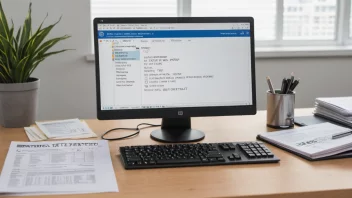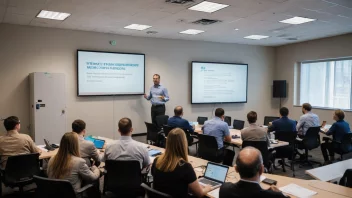In today's world, ensuring security during the hiring process is crucial for any organization. With the rapid advancement of technology and the increasing complexity of security threats, businesses must adopt robust security standards to protect sensitive information and maintain compliance. Here are five essential security standards that should be integrated into your hiring processes to enhance safety and security.
1. Background Checks
Conducting thorough background checks is a fundamental security standard in the hiring process. This practice helps in verifying the credentials of potential candidates and identifying any red flags that may pose a risk to your organization. Background checks typically include:
- Criminal History: Investigating any past criminal activities that could impact workplace safety.
- Employment Verification: Confirming previous employment history to ensure that candidates have the experience they claim.
- Education Verification: Checking academic qualifications to avoid hiring candidates with false credentials.
2. Data Privacy Compliance
Data privacy laws, such as the General Data Protection Regulation (GDPR) in Europe, impose strict requirements on how personal data is handled. Organizations must ensure compliance with these regulations throughout the hiring process. Key points include:
- Consent: Candidates should provide explicit consent for their data to be collected and processed.
- Data Minimization: Only collect data that is necessary for the hiring process.
- Secure Storage: Ensure that candidate data is stored securely and accessed only by authorized personnel.
3. Interview Security Protocols
During interviews, it's essential to maintain a secure environment to protect both the organization and the candidate. Implementing specific protocols helps in achieving this goal. Consider the following:
- Private Locations: Conduct interviews in private settings to prevent eavesdropping or unauthorized access.
- Secure Communication: Use secure platforms for virtual interviews, ensuring that sensitive information is not exposed.
- Non-Disclosure Agreements: Consider having candidates sign NDAs to protect proprietary information discussed during interviews.
4. Cybersecurity Measures for Online Applications
With the increasing use of online applications, cybersecurity must be a priority. Implementing robust cybersecurity measures can help prevent data breaches and unauthorized access. Focus on these areas:
- Secure Web Forms: Ensure that online application forms are encrypted to protect candidate information.
- Two-Factor Authentication: Utilize two-factor authentication for accessing hiring systems to add an extra layer of security.
- Regular Security Audits: Conduct regular audits of your hiring platform to identify and address potential vulnerabilities.
5. Training and Awareness Programs
Finally, investing in training and awareness programs for HR personnel is vital to maintain security standards. Employees involved in the hiring process must be educated about best practices and emerging threats. Effective training should include:
- Recognizing Red Flags: Teach staff to identify suspicious behaviors or inconsistencies in candidates' applications.
- Data Protection Policies: Ensure that all employees understand the organization's data protection policies and their responsibilities.
- Regular Updates: Provide ongoing training to keep staff informed about the latest security trends and compliance requirements.






